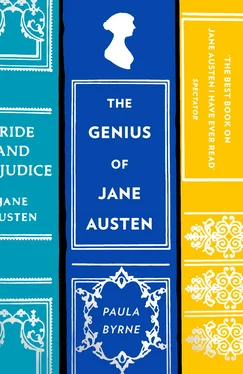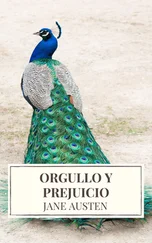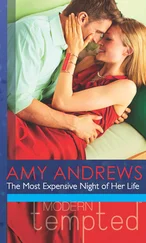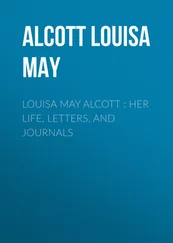As Jane Austen said herself, ‘Let other pens dwell on guilt and misery. I quit such odious subjects as soon as I can.’
I am grateful to the Centre for Kentish Studies, Maidstone, for permission to quote from Fanny Knight’s unpublished journals, and the Hampshire Record Office, Winchester, for permission to quote from Eliza de Feuillide’s unpublished letters and James Austen’s prologues and epilogues to the Austen family theatricals.
SS – Sense and Sensibility (1811)
PP – Pride and Prejudice (1813)
MP – Mansfield Park (1814)
E – Emma (1816)*
NA – Northanger Abbey (1818)
P – Persuasion (1818)
All quotations of the above are from The Novels of Jane Austen , ed. R. W. Chapman, 5 vols (3rd edn, Oxford: Oxford University Press, 1932–34).
MW – Minor Works
Quotations are from The Works of Jane Austen , vi, Minor Works , ed. R. W. Chapman, rev. B. C. Southam (London: Oxford University Press, 1975).
Jane Austen’s Letters , ed. Deirdre Le Faye (3rd edn, Oxford: Oxford University Press, 1995) is cited throughout as Letters .
LV – Lovers’ Vows
Quotations are from Lovers’ Vows: A Play, in Five Acts. Performing at the Theatre Royal, Covent-Garden. From the German of Kotzebue. By Mrs Inchbald. (fifth edn, London, 1798), reprinted in Chapman’s edition of MP .
* Published December 1815.
In 1821, four years after the death of Jane Austen, a critic in the Quarterly Review compared her art to Shakespeare’s. ‘Saying as little as possible in her own person and giving a dramatic air to the narrative by introducing frequent conversations’, she created her fictional world ‘with a regard to character hardly exceeded even by Shakespeare himself.’ 1
In the Victorian era, Austen was dubbed ‘the Prose Shakespeare’. 2George Eliot’s common-law husband, George Henry Lewes, developed the comparison in an influential Blackwood’s Magazine article on ‘The Novels of Jane Austen’:
But instead of description , the common and easy resource of novelists, she has the rare and difficult art of dramatic presentation : instead of telling us what her characters are, and what they feel, she presents the people, and they reveal themselves. In this she has never perhaps been surpassed, not even by Shakespeare himself. 3
Yet another nineteenth-century writer, the novelist Thomas Lister, ascribed her genius to revelation of character through dramatic dialogue: ‘She possessed the rare and difficult art of making her readers intimately acquainted with the character of all whom she describes … She scarcely does more than make them act and talk, and we know them directly.’ 4
Austen herself had a strong sense of the importance of dramatic dialogue in the novel. She and her family, like many others of their class, loved to read aloud together. The Austen women ranked novels according to how well they stood up to repeated group readings. Thus Charlotte Lennox’s The Female Quixote remained a firm favourite ( Letters , p. 116), whereas Sarah Burney’s Clarentine failed the test: ‘We are reading Clarentine, & are surprised to find how foolish it is. I remember liking it much less on a 2nd reading than at the 1st & it does not bear a 3rd at all’ ( Letters , p. 120).
Jane Austen also had strict notions about how characters in her own novels should be rendered dramatically. To her chagrin, her mother botched the dialogue badly when Pride and Prejudice was read aloud to some friends: ‘Our 2nd evening’s reading to Miss Benn had not pleased me so well, but I beleive [ sic ] something must be attributed to my Mother’s too rapid way of getting on – & tho’ she perfectly understands the Characters herself, she cannot speak as they ought’ ( Letters , p. 203).
Perhaps Austen’s frustration stemmed from her own aptitude for dramatic renditions. Her brother Henry noted her skill in the biographical notice written soon after her death: ‘She read aloud with very great taste and effect. Her own works, probably, were never heard to so much advantage as from her own mouth; for she partook largely in all the best gifts of the comic muse.’ 5Her niece Caroline Austen recorded in her Memoir . ‘She was considered to read aloud remarkably well. I did not often hear her but once I knew her take up a volume of Evelina and read a few pages of Mr Smith and the Brangtons and I thought it was like a play.’ 6
In Mansfield Park , it is typically tongue-in-cheek that Austen endows her villain Henry Crawford with her own gift for reading aloud. Edmund’s commendation of Henry’s reading of Shakespeare, ‘To read him well aloud, is no every-day talent’ ( MP , p. 338), is seconded by Lady Bertram’s approving comment, which curiously prefigures Caroline Austen’s: ‘It was really like being at a play’ ( MP , p. 338).
Austen’s nineteenth-century critics defined her genius in terms of her dramatic powers. Her great achievement was in character study. As in Shakespeare, the fools are as distinctive and perfectly discriminated as are the heroines, and all the characters reveal themselves, unhampered by an obtrusive authorial presence, through dramatic presentation and conversations – by a kind of ‘dramatic ventriloquism’. 7Yet in the twentieth century there was a common perception that Jane Austen had a deep distrust of the dramatic arts. This was principally due to the notorious amateur theatricals in Mansfield Park : the disruption caused to the household by the performance of Lovers’ Vows during Sir Thomas Bertram’s absence from home was taken as proof of the author’s own distaste for theatre. 8
There are, however, a range of judgements upon ‘home representation’ in Mansfield Park , not all of them hostile. It is an error to assume that Fanny Price’s astringent judgement on the theatricals is Austen’s own; after all, Fanny is by no means a disinterested commentator. Unlike her demure creation, who has never seen the inside of a theatre and is manifestly afraid of ‘exposing herself’ on stage, Austen herself was fascinated by professional theatre, visited it frequently, and, far from condemning private theatricals, participated in them herself, both when she was a child and when she was a woman in her thirties. Strikingly, only two years before writing Mansfield Park , she took part in a private performance of perhaps the most popular contemporary play of the Georgian period, Richard Brinsley Sheridan’s The School for Scandal .
Jane Austen’s letters reveal that she was steeped in theatre. As a young woman, she wrote short plays. She copied her brothers in the writing of burlesques in the style of Sheridan and Henry Fielding. She even turned her favourite novel, Samuel Richardson’s Sir Charles Grandison , into a five-act comedy. Her interest in the theatre, both amateur and professional, and her lifelong preoccupation with the drama undoubtedly influenced her mature writing. She lived through a golden age of English stage comedy. Yet critics of Austen have barely touched upon this rich source, save in occasional nods to her extraordinary gift for theatrical dialogue and the creation of sustained comic characterisation.
This book offers the first comprehensive account of Jane Austen’s interest in the theatre, but, more than this, it also suggests that her play-going and her reading of plays were a formative influence on her comic art. Part One of the book reveals her interest in the world of theatre and drama, while Part Two suggests that there is something intrinsically dramatic about her vision of the world in many of her major novels – not only Mansfield Park , but also Sense and Sensibility , Pride and Prejudice and Emma .
Читать дальше












